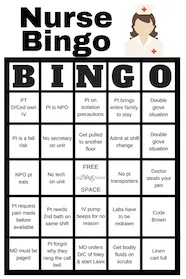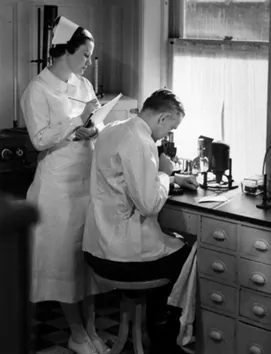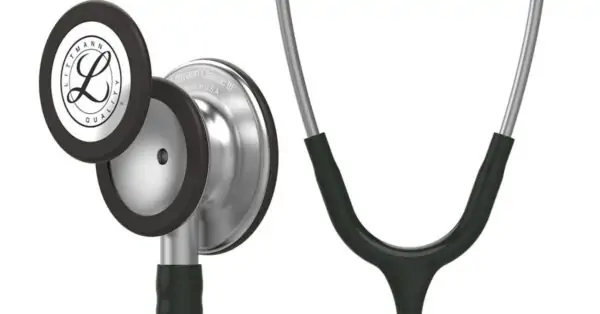We all know that nurses educate patients, their families, and other nurses. But what about doctors? What is the Doctor Nurse relationship (or the nurse doctor relationship)? There are so many cases of doctors learning from nurses.
The Doctor-Nurse Relationship
Many nurses are able to carry a great sense of pride knowing that their knowledge and expertise is shared with others. In addition to helping to train an educate new nurses in the workforce, many nurses also are unofficially tasked with the role of helping to educate young doctors.
Most physicians would likely agree that in their early days as doctors they learned a great deal about treating patients thanks to the wisdom and guidance of senior nurses.
Doctor-Nurse Relationship: Why Do Nurses Teach Doctors?
The simplest explanation for why this occurs is proximity, trust, and skill. Nurses spend more time with patients than any other members of the healthcare team. They have honed their skills to sense any slight changes in a patients condition and can inform an intern of a patient going south far more quickly than the vital signs might indicate. While some residents fresh out of medical school attempt to lay down the law and affirm their superiority over the nurses, they quickly learn that without having the nurses on their side they are bound to fail.
Nurses are Unsung Teachers
According to the article Nurses’ unsung role: helping educate doctors from the Montreal Gazette:
Nurses are the unsung teachers of young doctors. In their book Clinical Wisdom and Interventions in Acute and Critical Care, authors Patricia Benner, Patricia Hooper Kyriakidis and Daphne Stannard, all nurses and researchers, describe cases of nurses pointing out to medical interns and residents the warning signs of a patient’s deterioration, correcting their misinterpretations of signs and symptoms, suggesting diagnoses, and anticipating when and how to intervene. Many physicians, years later, will recall with gratitude those expert nurses who protected them as young doctors – and, more importantly, protected the patient. These nurses “saved” them when there was no time to call a senior physician. They depended on these nurses who knew the patients and were attuned to subtle changes in their condition. Yet nurses have never been recognized for their role in doctors’ education
Nurses Help Doctors Navigate Patient Care
Just because nurses do not attend medical school does not mean they are any less valuable in the education process of young doctors. Nurses can play a pivotal role in helping new physicians navigate the complicated world of patient care. Because nurses are the first line of defense and will be present when senior physicians are not, nurses can help educate and guide young doctors who are still green behind the ears. And if they are smart, and have the best interests of the patient at heart, they will listen.
This is a great example of the real need for healthcare to be handled with a teamwork approach. Laurie Gottlieb states:
Employers need to continue to create workplaces where nurses are given support to practise to the full extent of their training, and where physician-nurse partnership is the governance structure. Physicians need to treat nurses as respected and valued partners, not as subordinates. Nurses need to embrace these new opportunities and become accountable for their practice. And governments need to dedicate resources to support innovative nursing roles that complement those of doctors and other health professionals to meet the complex needs of patients and their families.
Nurse-Doctor Relationship: Mutual Respect
A nurse should not be treated as a subordinate. Nurses are not dominos who are meant to fall in formation whenever a physician beckons. They educated and talented professionals who should be treated with respect for their knowledge and expertise. They should be considered valued partners in a patient’s care.
No one person can take care of a patient alone. It is high time that nurses are seen as colleagues of physicians and not nursemaids. Doctor’s are not the supreme rulers in healthcare. They are vital members of the healthcare team. And so are nurses.
Nurses & Doctors – More Information
If you enjoyed reading about the relationship between nurses and doctors, you will appreciate these articles too:
- Why Nurse Empowerment is Import for the Future of Healthcare
- What Do Nurses Do?
- Little Known Secrets in Patient Finance
Download Nurse Bingo Today!

Liven up any shift with a fun game of bingo. See who can fill a row first!
Fill a whole card and lose grip with reality.
Your privacy is protected. We will never spam you.





I concur! IAmazing article! I’ve seen this scenario in hospitals countless of times. Unfortunately, when the residents become AP’s they forget about how much the nurses have helped them.
That is very unfortunate. I’ve encountered a few doctors who give nurses their due credit. Dr. Dean Burke is one 9
So true, great article.